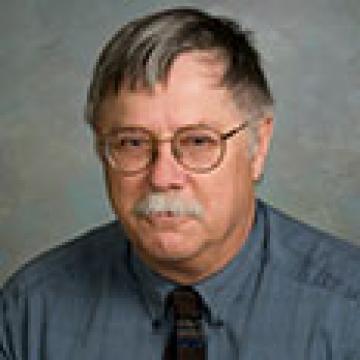James Monroe: Life After the Presidency
Monroe decided to follow the precedent set by Washington, Jefferson, and Madison and serve only two terms as President. His decision meant that an incumbent would not be running for the post in 1824. During the last few years of Monroe's tenure, some of his initiatives were defeated or delayed simply because of the maneuverings of those looking forward to the 1824 election. The main contenders during that campaign season were Secretary of State John Quincy Adams, Secretary of War John C. Calhoun, Secretary of Treasury William H. Crawford, Representative Henry Clay, and Senator Andrew Jackson. Monroe declared his intention to remain neutral during the election and did not endorse any candidate.
Following the inauguration of John Quincy Adams as President in 1825, Monroe remained in the White House for three weeks because his wife was too ill to travel. The couple then retired to their estate, Oak Hill, in Loudoun County, Virginia. Monroe was glad to be relieved of the exhausting duties of the presidency. At Oak Hill, he enjoyed spending time with his family and overseeing the activities of his farm.
During much of his later life, Monroe worked to resolve his financial difficulties. He had long served publicly in positions that paid mediocre salaries and demanded expenditures for entertaining and protocol. Consequently, Monroe was deeply in debt when he left the presidency. For the next several years, he spent much of his time pressing the federal government for tens of thousands of dollars due him from past services. Eventually the federal government repaid Monroe a portion of the funds he desired, allowing him to pay off his debts and leave his children a respectable inheritance.
In 1826, Monroe accepted appointment to the Board of Visitors of the University of Virginia. He was deeply committed to the university—founded by his friend Thomas Jefferson—and served on the board until he became too ill to continue. In 1829, he became president of the Virginia Constitutional Convention.
After struggling to complete a book comparing the U.S. government to the governments of ancient and modern nations, he abandoned the project and started work on his autobiography. It became the major focus of his later years, but he never completed it. Following his wife's death in 1830, Monroe, age seventy-two, moved to New York City to live with his daughter and son-in-law.
In the early spring of 1831, Monroe's health steadily declined. He died that year on July 4, in New York City. Monroe was the third of the first five Presidents to die on the Fourth of July; John Adams and Thomas Jefferson had died on that day five years earlier. Thousands of mourners followed his hearse up Broadway in Manhattan to the Gouverneur family vault in Marble Cemetery, while church bells tolled and guns fired at Fort Columbus. Monroe's body was later moved to Hollywood Cemetery in Richmond, Virginia.
